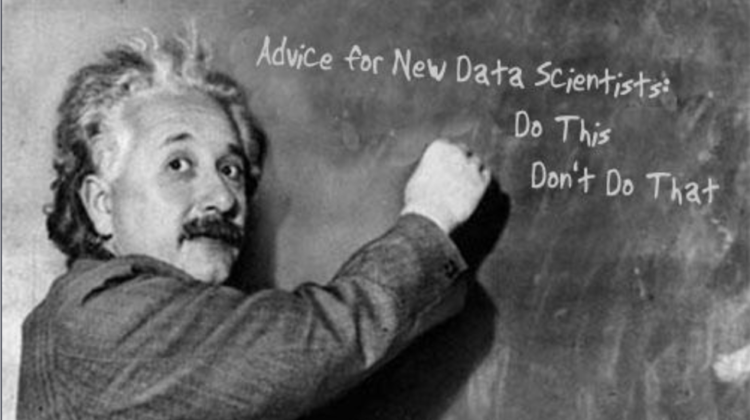
I was a Data Scientist long (long!) before Professor William S. Cleveland coined the term, back in 1999.
In the time since I first learned to code and began exploring data in the 1970s, I’ve also had the great honor and privilege of leading some of the most extraordinary teams of Data Scientists, Business/Intelligence Analysts, and AI Super-Geeks to ever put fingers to keyboards while working for organizations ranging from Samsung to the CIA, and from Silicon Valley to Sydney.
While I don’t know if I have anything particularly wise to offer, here are some thoughts I would encourage you to keep in mind as you begin one of the most exciting, interesting, and intellectively challenging careers imaginable:
- It’s not the size of your data. It’s what you do with it that counts.
- Passionate, numerate, curious, autodidactic, humble technophiles make the best Data Scientists. If you’ve got those qualities, you’ve got nothing to worry about.
- Have the heart of a hacker. Assume there is always a simpler way to solve the same problem.
- Academic and professional pedigrees may get you in the door. What earns your colleague’s esteem will be your ability to perform.
- This is supposed to be fun. We’re paying you a fortune to spend your day solving cool puzzles and figuring shit out. Don’t be a buzzkill; enjoy the ride — and try to be someone who’s fun to work with.
- Concepts are more important than techniques. Any fool can cut and paste a few lines of code. Focus more on understanding what that technique is achieving.
- Strip the word “I” from your vocabulary. Replace it with “we”.
- Where you learned is not nearly as important as what you learned.
- Remember that the value of mathematics comes from the ability to abstract concepts. Cultivate your ability to identify the essence of the problem you’re working on.
- Be more like Leonard and less like Sheldon.
- Focus on the fundamentals. Most of your peers don’t truly, deeply understand the most basic concepts — like variance and causality. Build a solid foundational knowledge and you’ll be able to take on any new challenge.
- Everyone wants to focus on the sexy stuff — but the analysis is the easiest part. Pay more attention to the preparation of your data, the presentation of your results, and the practical applications and implementation of your work.
- Become intimate with your data. If I ever hear you say, “I don’t really know what that variable is, but it’s critical to our model” I will smack you. Hard.
- Communicate complex concepts cogently. Only dilettantes and the insecure hide behind jargon, verbosity, and buzz-word-bingo. Make all your presentations so simple a CEO can understand them.
- Always have a good answer for why you’re doing your analyses. Preferably one that can be prefaced with a $.
- You’re never as smart as the data. Leave your biases at the door.
- SAS and SPSS skills are cool. You know what’s cooler? Doing the same analyses with freeware. If you don’t know Python or R…. learn. And if people start arguing over which one is better, roll your eyes and walk away.
- Learn. Learn more.
- Any approach can be beaten by an ensemble approach — and that goes for teams too. Cognitive diversity is the key. There is no “master algorithm”, great minds don’t think alike — and no one is as smart as everyone.
- Don’t be a hammer in search of a nail. Your goal should not be trying to find an excuse to use the latest whiz-bang technique. If the project calls for Convolutional Neural Networks, cool. If it calls for a correlation matrix, that’s what you should do.
- Data Scientists are as prone to fall prey to pareidolia, heuristics, logical fallacies, and cognitive biases as anyone. Perhaps more so. Semper Vigilans.
- There will always be time to work on the flying cars and laser-guided sharks after the real work is done. By all means, always have a hobby project you can peck at — but be sure you’re also being productive.
- The order of analytic operations is: Think, Analyze, Think, Reanalyze, Think…
- It’s called “imposter syndrome” — and we’ve all felt it. Don’t worry. Hiring you wasn’t a mistake. You really are smart enough, you know enough, and you can do this. Relax — and embrace your inevitable mistakes.
